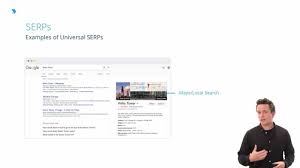Optimising SEO for Improved Online Visibility
In the competitive landscape of the digital world, Search Engine Optimisation (SEO) plays a crucial role in determining the online success of businesses. By optimising your website’s SEO, you can enhance your visibility on search engines like Google, attract more organic traffic, and ultimately drive conversions. Here are some key strategies to optimise your SEO effectively:
Keyword Research and Analysis
Keywords are the foundation of SEO. Conduct thorough keyword research to identify relevant terms and phrases that your target audience is searching for. Use tools like Google Keyword Planner or SEMrush to discover high-volume keywords with low competition.
On-Page Optimisation
Optimise your website’s on-page elements such as title tags, meta descriptions, headings, and image alt text with targeted keywords. Ensure that your content is well-structured, engaging, and provides value to users. Improve page loading speed and mobile-friendliness for better user experience.
Quality Content Creation
Create high-quality, relevant content that aligns with your target keywords and addresses the needs of your audience. Regularly update your website with fresh content like blog posts, articles, videos, or infographics to keep users engaged and encourage repeat visits.
Link Building Strategies
Build a strong backlink profile by acquiring quality inbound links from reputable websites in your industry. Guest posting, influencer collaborations, and social media promotion can help increase the authority of your site and improve its search engine rankings.
Technical SEO Optimisation
Ensure that your website is technically sound by fixing issues like broken links, duplicate content, XML sitemap errors, and crawlability problems. Optimise site structure, URL structure, and schema markup to help search engines understand and index your content effectively.
Monitor Performance and Analytics
Track key performance indicators (KPIs) such as organic traffic, keyword rankings, bounce rate, and conversion rate using tools like Google Analytics or Moz Pro. Analyse data regularly to identify areas for improvement and adjust your SEO strategy accordingly.
In conclusion, optimising SEO is an ongoing process that requires dedication, strategic planning, and continuous adaptation to algorithm updates. By implementing these best practices consistently, you can enhance your online visibility, attract more qualified traffic to your website, and achieve sustainable growth in the digital realm.
Essential FAQs on Optimising SEO Effectively
- How do you do SEO optimization?
- Why optimize SEO?
- What is SEO Optimised?
- How can I optimize my SEO for free?
- Why should you optimize SEO?
- What is meant by SEO optimization?
- Is SEO optimization easy?
- What does optimized SEO mean?
- What is being optimized in SEO?
- How do you optimize for SEO?
- How would you optimize SEO?
- How do you Optimise SEO?
- How do you optimize SEO?
How do you do SEO optimization?
When it comes to SEO optimization, the process involves a series of strategic steps aimed at improving a website’s visibility and ranking on search engine results pages. Firstly, thorough keyword research is conducted to identify relevant terms that users are searching for. These keywords are strategically incorporated into on-page elements such as title tags, meta descriptions, and content. Quality content creation plays a vital role in engaging users and attracting organic traffic. Additionally, building a strong backlink profile and ensuring technical aspects like site structure and mobile-friendliness are optimised are key components of effective SEO. Regular monitoring of performance metrics allows for adjustments to be made to the strategy to continually improve online visibility and drive results.
Why optimize SEO?
Optimising SEO is essential for businesses looking to enhance their online presence and reach their target audience effectively. By optimising SEO, you can improve your website’s visibility on search engines, increase organic traffic, and ultimately boost conversions and revenue. A well-optimised website with relevant content, strategic keywords, and a strong backlink profile not only ranks higher in search results but also provides a better user experience. Investing in SEO optimisation is a long-term strategy that can lead to sustainable growth and competitive advantage in the digital landscape.
What is SEO Optimised?
SEO optimisation refers to the process of enhancing a website’s visibility and ranking on search engine results pages through various strategies and techniques. When a website is SEO optimised, it means that it has been structured and designed in a way that makes it easier for search engines to crawl, index, and understand its content. This includes using relevant keywords, creating high-quality content, improving site speed and user experience, building quality backlinks, and adhering to technical SEO best practices. Ultimately, SEO optimisation aims to increase organic traffic, attract targeted visitors, and improve the overall online presence of a website.
How can I optimize my SEO for free?
Optimising your SEO for free involves leveraging various strategies to enhance your website’s visibility on search engines without incurring additional costs. One effective approach is to focus on keyword research and incorporate relevant keywords into your content naturally. Optimising your website’s meta tags, headings, and image alt text can also improve its search engine ranking without any financial investment. Additionally, creating high-quality, informative content regularly and building a strong backlink profile through guest posting or social media promotion are cost-effective ways to boost your SEO performance. Monitoring your website’s analytics and making data-driven adjustments can further optimise your SEO for free, ensuring sustainable growth in online visibility and organic traffic.
Why should you optimize SEO?
Optimising SEO is essential for businesses seeking to enhance their online presence and reach their target audience effectively. By optimising SEO, you can improve your website’s visibility on search engines, attract more organic traffic, and increase the chances of ranking higher in search results. This heightened visibility not only drives quality traffic to your site but also boosts brand credibility and trust among users. Ultimately, a well-optimised SEO strategy can lead to increased conversions, improved user engagement, and long-term success in the competitive digital landscape.
What is meant by SEO optimization?
Search Engine Optimization (SEO) optimization refers to the process of improving a website’s visibility and ranking on search engine results pages (SERPs) through strategic techniques and best practices. It involves enhancing various aspects of a website, such as content, keywords, meta tags, links, and technical elements, to make it more relevant and valuable to both users and search engines. By optimising SEO, businesses aim to attract organic traffic, increase their online presence, and ultimately drive conversions. SEO optimization is an essential digital marketing strategy that helps websites stand out in the competitive online landscape and reach their target audience effectively.
Is SEO optimization easy?
Optimising SEO is a multifaceted process that requires a combination of technical expertise, strategic planning, and continuous effort. While some aspects of SEO optimisation can be straightforward, such as conducting keyword research or implementing on-page optimisation techniques, the overall task can be challenging due to the ever-evolving nature of search engine algorithms and the competitive online landscape. Success in SEO optimisation often hinges on staying informed about industry trends, experimenting with different strategies, and consistently monitoring and adjusting your approach based on data insights. Therefore, while SEO optimisation may not be easy in the traditional sense, with dedication and a well-rounded strategy, businesses can achieve significant improvements in their online visibility and organic traffic over time.
What does optimized SEO mean?
Optimized SEO refers to the strategic process of enhancing a website’s visibility and ranking on search engine results pages through various techniques and best practices. This involves improving factors such as keyword relevance, on-page elements, content quality, backlink profile, technical aspects, and user experience to align with search engine algorithms. By optimising SEO effectively, businesses can increase organic traffic, attract relevant audiences, and ultimately achieve better online visibility and higher search engine rankings.
What is being optimized in SEO?
In the realm of SEO, the focus is on optimising various aspects of a website to improve its visibility and ranking on search engine results pages. When we talk about what is being optimised in SEO, we refer to a range of elements such as on-page content, meta tags, images, site structure, and backlinks. By fine-tuning these components with relevant keywords, quality content, and technical enhancements, businesses aim to enhance their online presence and attract organic traffic from search engines like Google. The ultimate goal of SEO optimisation is to make a website more user-friendly, authoritative, and easily discoverable by both search engines and users seeking relevant information or products online.
How do you optimize for SEO?
Optimising for SEO involves a multifaceted approach to enhance your website’s visibility and ranking on search engine results pages. To optimise for SEO effectively, start by conducting thorough keyword research to identify relevant terms that your target audience is searching for. Implement on-page optimisation techniques such as optimising title tags, meta descriptions, and headings with targeted keywords. Create high-quality content that provides value to users and encourages engagement. Focus on building a strong backlink profile from authoritative websites in your industry. Additionally, ensure technical aspects of your website, such as site structure and schema markup, are optimised for search engines to crawl and index efficiently. Regularly monitor performance metrics and analytics to track progress and make necessary adjustments to your SEO strategy for continued improvement.
How would you optimize SEO?
To optimise SEO effectively, it is essential to start with thorough keyword research to identify relevant search terms. Implement on-page optimisation by strategically placing these keywords in title tags, meta descriptions, and headings. Create high-quality and engaging content that resonates with your target audience while focusing on building a strong backlink profile through reputable sources. Furthermore, ensure technical aspects like site structure and schema markup are optimised for search engines to crawl and index your content efficiently. Regularly monitor performance metrics using tools like Google Analytics to track progress and make necessary adjustments to your SEO strategy for continued improvement in online visibility and organic traffic growth.
How do you Optimise SEO?
To optimise SEO effectively, it is essential to start with comprehensive keyword research to identify relevant terms and phrases that resonate with your target audience. Next, focus on on-page optimisation by strategically incorporating these keywords into title tags, meta descriptions, headings, and content. Quality content creation plays a vital role in engaging users and improving search engine rankings. Additionally, implementing strong link building strategies, ensuring technical SEO compliance, and regularly monitoring performance through analytics are key components of a successful SEO optimisation strategy. By following these best practices consistently and staying informed about industry trends, businesses can enhance their online visibility and attract valuable organic traffic.
How do you optimize SEO?
To optimise SEO effectively, start by conducting comprehensive keyword research to identify relevant search terms. Implement on-page optimisation techniques such as refining title tags, meta descriptions, and content structure with targeted keywords. Focus on creating high-quality content that resonates with your audience and encourages engagement. Build a strong backlink profile through reputable sources and ensure technical aspects like site speed and mobile-friendliness are optimised. Regularly monitor performance metrics and adjust strategies based on data analysis to continuously improve your SEO efforts.




